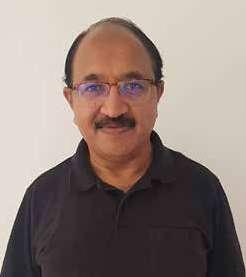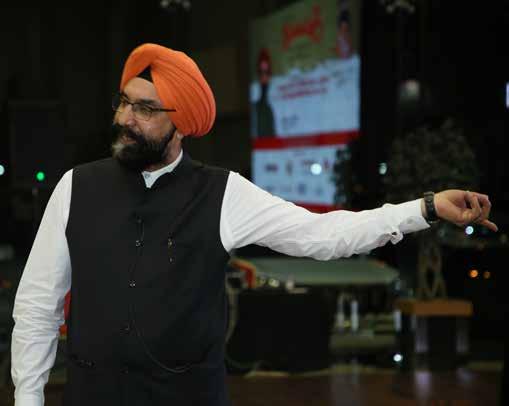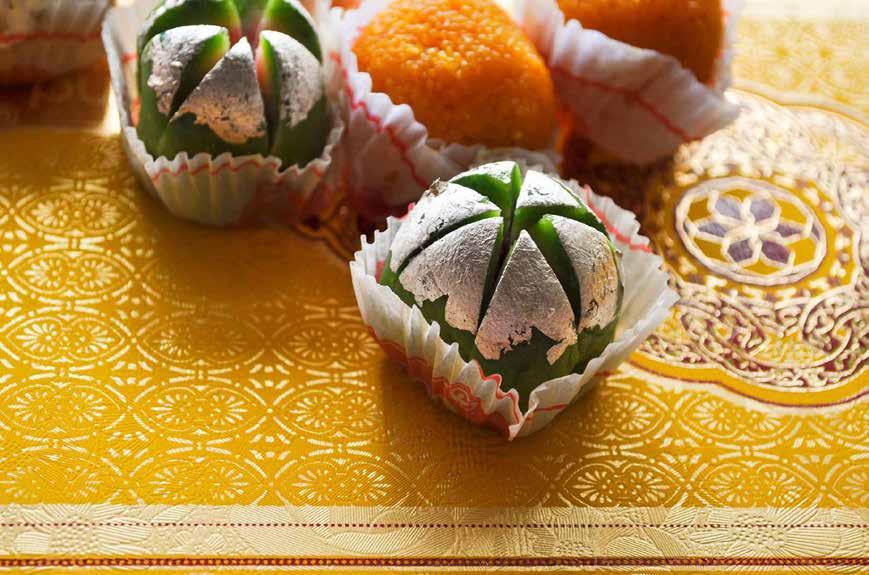
24 minute read
INTERVIEW
India’s new Ambassador to Bahrain takes charge
assignment, he was serving as Joint Secretary/ Head of Northern Division at Ministry of External Affairs, New Delhi.
Advertisement
Ambassador Srivastava joined the Indian Foreign Service in 1998. He began his diplomatic career in the Embassy of India, Berlin. Thereafter he served as Second Secretary/ First Secretary at the Indian High Commission in Ghana; and as First Secretary/ Counsellor in charge of Political, Development Cooperation, Press, Information and Culture at Indian Embassy in Bhutan.
Ambassador Srivastava has also served as Counsellor/ Deputy Chief of Mission at Embassy of India, Nepal. During his tenure as Deputy Chief of Mission at Indian Embassy in Kathmandu, he coordinated India’s relief and rescue efforts for Nepal following the massive earthquake that struck Nepal in 2015.
At Headquarters, Mr. Piyush Srivastava has worked in divisions dealing with countries in India’s neighbourhood and extended neighbourhood. His assignments included Deputy Secretary (Afghanistan/ Iran), Director in Southern Division, and Joint Secretary/ Head of BIMSTEC and SAARC Division at the Ministry of External Affairs, New Delhi. He has also served as Joint Secretary at Indian Council of World Affairs, a premier think tank of India.
He speaks Hindi, English and German languages.
Ambassador Srivastava holds B. Tech. and M. Tech. degrees from Indian Institute of Technology (IIT) Kanpur.
He is married to Monika Srivastava and they have one son.
On the eve of Indian Independence Day, Ambassador Srivastava spoke to
Ambassador Piyush Srivastava joined as Ambassador of India to Bahrain on 28 July 2020. Prior to his current
Salaam Bahrain:
SB: You have taken charge in Bahrain at a time when the community is looking to the embassy for solutions in managing the challenges it faces due to the pandemic. How would you say the COVID crisis alters your role as a diplomat?
PS: The historic and civilisational ties between India and Bahrain have, in modern times, been further strengthened and diversified in all spheres viz. political, economic, security, social and cultural. The large and vibrant Indian community of Bahrain plays an important role in promoting our deeprooted bilateral ties. It will be my endeavour to further strengthen and diversify the age-old bonds of friendship and cooperation between our two countries, and to ensure the welfare of the Indian community in Bahrain.
COVID-19 pandemic has presented unprecedented challenges before the world. It has been a priority of the Government of India to ensure well-being of our people abroad. The Embassy, in close consultation with our community representatives/members, has tirelessly worked to assist and resolve the problems faced by the Indian community. I thank the leadership of the Kingdom of Bahrain for all cooperation and support extended in this regard. We would continue efforts towards mitigating the impact of COVID-19 on the Indian community members and to effectively address the issues being faced by them in these difficult times. Though the restrictions imposed by COVID 19 such as social distancing may not allow me to freely interact with our community at this point in time, I would like to assure everybody that through the use of digital technology, we remain in constant touch with the members of Indian community to ensure their wellbeing and welfare.
SB: It is early days of course, but would you care to share with us your first impressions of Bahrain?
PS: I have just arrived in this beautiful country. Even during the short span of my stay here, I have felt the warmth and positivity towards India and Indians living in Bahrain, thus reflecting the closeness and depth of the bilateral relations between our two countries and people. In coming days, I look forward to meeting the leadership, government officials, business community and other concerned stakeholders of Kingdom of Bahrain to discuss ways to further strengthen and diversify our bilateral ties. Of course, both my family and I would definitely explore various magnificent tourist and cultural sites in different parts of this beautiful country.
SB: Please share with us the impact of the Vande Bharat mission on Bahrain. How many flights and how many passengers have departed? There are also other flights organised privately. How is the embassy helping these groups?
PS: Vande Bharat Mission is the largest such repatriation mission undertaken by the Government of India for bringing home the stranded Indians abroad in wake of COVID 19 pandemic. Under Vande Bharat mission, till date more than 52 special Air India flights have repatriated approx. 9100 Indian nationals from Bahrain. Apart from the
H.E Ambassador Piyush Srivastava presented a copy of his credentials to H.E. Dr. Abdullatif bin Rashid Al Zayani, Minister of Foreign Affairs of Kingdom of Bahrain repatriation efforts of the Government of India, members of the Indian community have also arranged chartered flights to facilitate repatriation of Indian nationals. Till date 60 chartered flights have been organised which repatriated approx. 10000 Indian nationals back home. To tide over the challenges thrown by COVID-19, various efforts and initiatives of the Mission and the Indian Community are being coordinated to ensure needy Indian nationals get the timely support.

SB: What is India doing for returning migrant workers? While the country is understandably in the grip of coping with COVID, are there any ideas and blueprints to support the thousands who have lost jobs in the Gulf?
PS: In order to address the job losses due to COVID-19, Government of India is conducting a skill mapping of citizens who have returned to India through Vande Bharat mission. For this, National Skill Development Corporation has been appointed as the nodal agency which is creating a Skilled Workers Arrival Database for Employment Support [SWADES]. Information thus collected will be shared with Indian & foreign companies so that these companies can contact these skilled migrant workers directly. Further, under ‘Atmanirbhar Bharat Mission’ announced by Hon’ble Prime Minister Shri Narendra Modi in May 2020, various initiatives and reforms are being undertaken for creating job opportunities and benefitting the migrant workers.
SB: The GoI has introduced a slew of programmes to align the training and skills of Indians to the global workplace. Do you think this will make Indian workers more attractive to hire for the Gulf countries?
PS: As you are aware, Indians are appreciated and preferred by the employers in Bahrain due to their workethic, peaceful nature, professionalism and apolitical approach. In the last few years, Government of India has undertaken a series of initiatives for developing skills of Indian workforce as per the demands in various industries globally. Further, as mentioned above, various skilling initiatives have also been undertaken in wake of COVID 19 pandemic. These focussed efforts on developing requisite skill sets amongst the Indian workforce has upgraded their skills. I am sure that employers in Gulf countries as well as in other countries would find them more suitable and attractive, as they would add to the productivity and profitability of their respective companies/ sectors.
SB: The new education policy of the GoI has been widely praised. Will you be using its new approaches and appeal to encourage Bahrainis to study in India? After all, when Bahrainis study in India, they go on to develop a better understanding of our country and strengthen bilateral ties at a grassroots level.
of cultural and educational exchanges. Many Bahraini nationals including parliamentarians, senior officials, board members of big companies and senior executives of banking and financial institutions have done their higher education in India. A number of Indian schools are providing quality education in Bahrain. A number of educational institutions, both in the public and private sector in India, have established themselves on the world map as providers of affordable quality education. NEP 2020 has paved way for transformational reforms in the education sector, thus further enhancing the image of Brand India in the field of education. I am sure this will encourage more and more Bahraini students to go to India for obtaining quality education. Our effort would be to further promote cooperation and exchanges in education sector.
SB: Although these are grim times in terms of public gatherings and events, what is your vision for tapping Indian arts and culture to strengthen IndoBahraini ties?
PS: The civilisational and cultural relations between India and Bahrain date back to Dilmun civilisation in Bahrain and Indus Valley civilisation in India. Presence of large Indian community in Bahrain have created deep imprints of Indian culture on the social milieu of Bahrain. Celebrations of various Indian festivals with equal fervour by both Indian and Bahraini nationals including by the members of the Royal family is the embodiment of this fact. To further strengthen cultural ties between the two countries at the institutional level, an MoU for Cultural Exchange Programme was signed during the recent State visit of our Prime Minister to the Kingdom of Bahrain in August 2019 which created the scope of cultural cooperation in the areas of Art, Music, Literature, Archives etc. I am hopeful that once the COVID 19 situation improves, we will see a lot of activities in this areas such as cultural troupes exchanges, visits of youth delegations etc. In the meanwhile, we would continue the activities and interaction through digital platforms.
SCIENCE & TECH
Indian vaccine giant offers hope against COVID-19
Today, an Indian drug giant and the world’s largest vaccine maker, is well ahead of the global race to discover a vaccine against the coronavirus that has brought the world to a standstill. By ADITI NAGAPPA
India's eighth richest tycoon and Serum Institute of India founder Dr. Cyrus Poonawalla, was originally a breeder of thoroughbreds
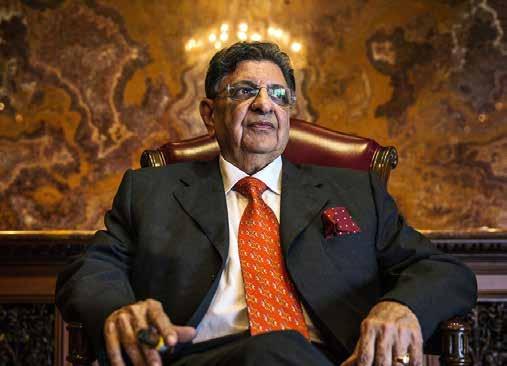
Think of vaccines – and we are all thinking about them these days! – and the first images that rise in our minds is that of Edward Jenner (smallpox vaccine 1796) and Louis Pasteur (anti-rabies vaccine 1885). However, experiments with bacteriology and vaccines date far back to 1000 AD when the Chinese first used innocultion against smallpox.
Today, an Indian drug giant, littleknown outside the vaccine world, is in the spotlight for its daring promise to churn out 100 million doses of coronavirus vaccine for poorer countries and price them at less than $3. Serum Institute of India (Serum) is the world’s largest vaccine maker and is well ahead of the global race to discover a vaccine against the coronavirus that has brought the world to a standstill.
The Pune-based vaccine maker has signed deals with a slew of research groups and NGOs – with the Bill & Melinda Gates Foundation to make and distribute a billion doses of a yetto-be approved coronavirus vaccine and with British drugmaker AstraZeneca to supply one billion doses of University of Oxford’s potential novel coronavirus, or COVID-19 vaccine to nearly 60 low-andmiddle-income countries (LMICs). Serum will provide 400 million doses before the end of 2020 as part of the arrangement.
In India, human trials on up to 5,000 volunteers in Pune, a city ravaged by the epidemic, is expected to commence by the end of August.
“The vaccine under development will be administered to 4,000-5,000 volunteers in Pune and Mumbai, which have high rates of coronavirus infections, as part of the crucial phase three of the trial which will determine if the antidote can be introduced in the market or not,” said Serum’s CEO Adar Poonawalla, speaking to various publications.
If human trials prove successful, Poonawalla said that they would launch the vaccine under the name ‘Covidshield’ by early 2021. Reports in medical journal ‘The Lancet’ suggest that early human trials of this vaccine have garnered some success.
Biotech face
What is Serum Institute of India about and how did the 50-year-old vaccine maker become the face of the Indian fight against COVID-19? Founded by Adar’s father and billionaire, Dr. Cyrus Poonawalla, Serum has, for more than five decades, manufactured critical vaccines for diseases including tetanus, measles and meningitis, amongst others, which are then sold predominantly in the developing world.
Before the Poonawalla family got into the business of manufacturing vaccines, they were major players in the national horse racing circuit through their Poonawalla Stud Farms. However, by the time he was 20 years old, Dr. Cyrus Poonawalla realised that horse racing was a waning sport in the socialist
PM Modi listens to Adar Poonawalla during a tour of the Serum and its surrounding area

India of the time. It was a “chance conversation” with a vet at their farm, which inspired Dr. Poonawalla to get into the business of vaccines.
“At the time, the farm’s retired horses were donated to the governmentowned Haffkine Institute in Mumbai, which made vaccines from horse serum. Dr. Poonawalla figured he could take up the challenge of meeting the demand for vaccines in the country by extracting the serum from horses himself and producing cheaper vaccines.
So, Dr. Poonawalla set up a small laboratory in one corner of his stud farm, and founded the Serum Institute of India in 1966 which launched its first therapeutic anti-tetanus serum within two years. Much of the growth in the last century came from keeping the prices of the vaccines very low, which helped the company penetrate the market without large-scale promotions or advertisements. While some of the vaccines it produces specifically fit the need of poorer countries like the oral rotavirus vaccine, which requires no cold storage, others are essentially variants of products developed by global drug giants.
In the COVID fight, Adar Poonawalla estimates that by the first quarter of 2021, the vaccine will reach Indian citizens, and is expected to be priced at Rs 1,000. He has also gone on to claim that Serum has put nearly $200 million of its own money at risk by manufacturing about 300 million doses of the experimental vaccine even before the final clearances are given by regulators in both India and the United Kingdom.
“The major breakthrough came in the mid-1980s when we got pre-qualified or accredited for supplying vaccines to the UN agencies. Thereafter, there was a meteoric rise for the company,” Poonawalla said in an interview to CNBC TV18. “Today, we protect more children than any other big pharma (company) in the world.”
Serum has been manufacturing the DTP vaccine since 1974 and the measles vaccine M-Vac since 1989 and claim credit for ensuring India became selfsufficient in vaccines for whooping cough, diphtheria and tetanus in the 1980s. By the turn of the ‘90s, Serum had become the largest manufacturer
of vaccines in India.
Recognition soon followed from global agencies with Serum receiving accreditation from the World Health Organization in 1994 to export quality vaccines and supply global agencies

like the UNICEF (United Nations Children’s Fund). By 1998, Serum was exporting vaccines to over 100 countries, particularly those in the lowincome bracket, and by the turn of the 21st century “one out of every two children in the world was vaccinated by a vaccine of Serum”. In the past, the Gates Foundation has credited Serum for helping rid the worst-affected parts of Africa of meningitis.
Money machine
Despite its sterling track record as a key player in enabling improved public health indices, make no mistake – Serum is no charity trust. According to Business Insider, it clocked a revenue of around Rs 5,900 crore in FY19. That is six times the revenue of its nearest rival, Hyderabad-based Biological E, which generated Rs 952.4 crore in FY19. “Cheaper production costs in India are part of what Poonawalla says is the Serum Institute’s advantage over big Western players like Sanofi and GlaxoSmithKline. Yet the Serum Institute has never created a first-of-a-kind vaccine — meaning its entire business model is based on having its scientists piggyback on the basic research of other companies to understand a disease and the body’s immune response. Once the Serum Institute has produced a quality version of the same vaccine created by
What makes Serum a winner?

Vaccine manufacturing is a complex process with stringent regulatory expectations. There is a huge amount of investment in R&D and equipment. Importantly, any vaccine has to be affordable to be used widely by governments. At any given point, there are more than 100 potential vaccines under development for COVID-19 and most of these are launched by small biotechs and academic institutions.
It requires huge investment to take a vaccine into late-stage clinical trials and produce at mass scale. Most biotech firms have neither the wherewithal nor the experience to undertake end-to-end vaccine development. They all need someone to help them.
Serum however, ticks all the boxes effectively. As a producer of the largest portfolio of World Health Organisation (WHO) pre-qualified vaccines, it has acknowledged expertise. The Poonawallas are very rich – Dr. Cyrus Poonawalla, the founder, is India’s eighth richest man – and not averse to investing in the company. Serum invested Rs 4,000 crore to build the world’s largest multi-functional product facility in Pune. It can produce up to 500 million doses of vaccines a year.
It is also well connected with multilateral funding agencies and governments and is a powerful, influential game-changer. The Poonawallas are among a few corporate leaders in India who have clout in government circles. Now, Serum’s high-volume, low-cost vaccine business model has brought the Poonawallas closer to Microsoft founder Bill Gates whose Foundation is very influential when it comes to global healthcare trends. In recent high-level meets held by India’s health ministry to discuss about crucial drug regulatory reforms, the government invited Poonawalla to provide inputs.
Big Pharma, it is able to manufacture huge numbers of doses quickly and inexpensively,” says a Politico report. It is able to manufacture quality versions of vaccines created by Big Pharma in huge volumes inexpensively. As a result, Big Pharma has massively resisted Serum’s entry into European and American market.
According to pharma industry analysts, the company’s access to scientific expertise, financial strength, ability to produce vaccines at massive scale, and a large distribution network make it attractive for potential licencing deals. This has led to tie-ups like the ones mentioned earlier and not-for-profit organisations such as GAVI and these give Serum the crucial volume market to become Asia’s largest vaccine maker and the world’s second largest in terms of doses manufactured and sold.
Careful strategy
The story of how Dr. Cyrus Poonawalla founded Serum as an ambitious 25-year old is well-known. The family owns the Poonawalla Stud Farm, India’s largest thoroughbred breeding operation and their horses have been consistent winners. Even today, Dr. Poonawalla begins his day with a visit to his stables before going to his office at Serum.
The family is not shy of flaunting the trappings of its enormous wealth – paintings and art worth over $70 million, sports cars and real estate. In 2015, the Poonawallas coughed up Rs750 crore ($113 million) to buy a former US consulate building in Mumbai, considered India’s most expensive residential purchase. However, industry watchers say, they are conservative business leaders, guided by caution despite leaps of innovation.
Serum has also grown through a carefully paced strategy of acquisitions and dealerships. In 2012, it bought out Dutch vaccine maker Bilthoven Biologicals—a lossmaking firm run by the Netherlands government—and pumped in 70 million euros ($78 million) over three years to increase capacity. The Bilhoven acquisition gave Serum access to injectable polio vaccine technology, which was then available to just three vaccine producers globally. After scaling up volumes, the company reduced prices substantially in the global market to sell polio vaccines to UNICEF for its polio eradication programme.
In an interview to CNBC TV18, Dr. Poonawalla explained: “As the world’s largest vaccine manufacturer, nobody ever dreamt that we do more than Glaxo or Merck or Sanofi. And they are a clutch of 20 companies or ten companies that have been merged, whereas we are a company that started as a small scale company without any government support. And, that I would consider would be a major milestone in my career, at the cost of huge profits that we have sacrificed by keeping the prices very affordable, the lowest in the world.”
In November 2014, Serum also signed a deal with Cipla, a homegrown pharmaceutical company, for marketing Serum’s paediatric vaccines to the global market, prompting talks of an impending merger between the two companies, that was quickly dismissed by the Poonawallas.
The Poonawallas also have a strong desire to use their expertise to help India at a time when the country is being ravaged by COVID-19 pandemic, the second person added. It isn’t vaccines alone. Adar Poonawalla, a second-generation entrepreneur, has invested in a little-known Pune-based diagnostic company known as Mylab. The funding helped Mylab to become one of the largest RT-PCR test kit providers in India, and significantly reduce import dependence.
“Under Adar (Poonawalla), Serum is showing some signs of ambition, by investing ahead of the curve and a strong urge to enter the highly regulated markets like Europe and US,” a person familiar with the company’s operations said, “And the business of vaccines unlike pharmaceuticals is much more stable.”
74




Happy





INDEPENDENCE DAY
to the people of India
NATIONAL FIRE FIGHTING COMPANY WLL NATIONAL FIRE AND SAFETY
P.O.BOX:11645, MANAMA, KINGDOM OF BAHRAIN OFFICE – TEL: 17531277, FAX: 17531288 SHOWROOM – TEL:17246555,17242217,FAX:17231261 Email: nfsafety@batelco.com.bh, Website: www.nfsafety.com
SERVICES OFFERED
* Sprinkler system *Fire hose reel system *Wet riser system *Dry riser system * Deluge systems *Foam system *Fire pump sets * Gaseous fire suppression system-FM 200,Inergen, Nitrogen,CO2 systems *Fire extinguishers-Water, CO2, Dry powder, Foam, Wet chemical *Fire alarm - Addressable, Conventional *Pressurization & Smoke extraction systems *Fire blankets, Warning signages, Al l kinds of PPE * Kitchen hood fire suppression systems, LPG gas detection systems *Sales, Installation and maintenance of all kinds of fire protection & fire alarms systems *Serving, Refilling and Re-validation of all kinds of fire extinguishers.
Safety, Security and Fire Protection System Engineers
Nazia promotes Indian crafts and textile heritage
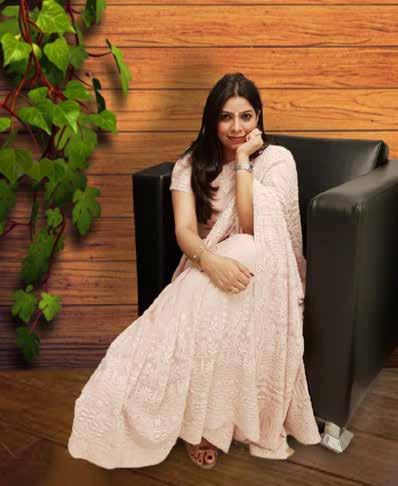
Nazia Mustafa credits business-friendly Bahrain’s for helping to promote Indian crafts and textiles


Nazia Mustafa, fashion curator and businesswoman based in Bahrain, has been promoting Indian crafts especially textiles art through her boutique Moda Vestire and has taken the name of India as well as Bahrain to as far away as Las Vegas where she is making inroads in the fashion market.
“I am happy to be able to take forward the glory of Indian crafts to Bahrain fashionistas as well as to the world. The kind of quality and timelessness the Indian crafts represent is something that I am proud to showcase.
I am extremely humbled and grateful for the support I have received. The business-friendly environment of Bahrain has been a boon as it helped my hone my business skills and strategies and given me the confidence to take them to the world stage”, says Nazia.
With all the talk of social distancing and mask mania, styling and putting together the right look can be challenging. And Nazia is here to help. She says that that the summer of 2020 will be all about bold accessories that will draw the attention away from your
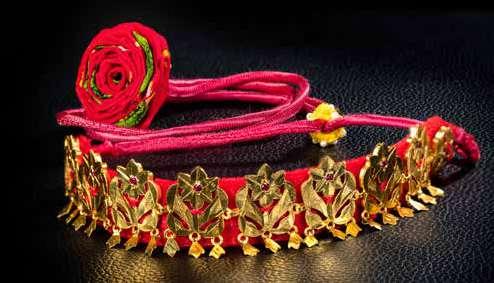


FASHION
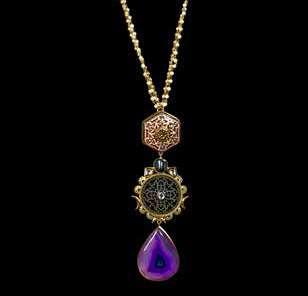
mask and gloves which can be noticed even from far away in social distancing situations.
“Choose big chunky earrings, statement necklaces and lovely BoHo belts
Pair them with bright yet soothing colours and light fabrics with delightful patterns.
Match these with crazy and beautiful purses and jackets, lots of bangles and wrist jewellery. Let your hands do the talking!
Go for shiny, metallic offbeat shoes and juttis and make sure you flash them”, says Nazia.
You can check out the Moda Vestire website to shop for the best looks online on their website (www.vestirebh. com/shop), on Vestire’s Facebook or Instagram page.


TELECOMS
Lucky connects you to India and South Asia Are you Feeling Lucky with an Exciting New Prepaid Product?
Sajith Pillai
The latest Prepaid product to capture the imagination of consumers in Bahrain, Lucky is making waves especially with the South Asian expat community in Bahrain. The product has been carefully tailored and ticks all the boxes expected from a buzzy telecoms product.
“For only BD8 per month, inclusive of daily-wage expatriate workers. They also VAT, Lucky members will benefit from unlimited Lucky to Lucky and Batelco calls, 200 minutes for calls to other local operators, 10GB of Data with truly unlimited TikTok and attractive discounts on international calls to India, Bangladesh, Pakistan, Sri Lanka and Nepal,” explained Sajith Pillai, the Head of Lucky.
The biggest attraction of the Lucky Sim is that Lucky comes loaded with prizes to live up to its name - all new “Lucky” members will receive a Scratch & Win voucher, and everyone is a winner! Prizes include a wonderful selection of gift vouchers, motorbikes and lots more.
“This is different from any other Prepaid product in the market, providing you with everything you need in a mobile service,” said Lucky Marketing and Communication Specialist Jeevan Sasi.
The Prepaid product is finding big success especially among youngsters and adults alike who have embraced its excellent value and affordability. It can be topped up with refills that come with accumulative validity for up to one year. Similarly, if you are running out of data, you can refill with a large variety of available add-ons. Watch donated over 900 face masks to ICRF to be distributed to expatriate workers. The ILA also to donate previously out and follow their social media channels for some amazing weekend offers. You can just dial up a refill service and top up your number from the comfort of your home or explore the many details of the Lucky service at designated Lucky shops and authorized resellers throughout Bahrain.
Expats can also use Lucky to transfer credit to loved ones back home with the International Credit Transfer service.
“Lucky comes with the assured quality promise of the Bahrain Telecommunications Company which is powering the product,” Sajith explained, “I think it has hit the high notes because we have channeled our understanding of the needs of the South Asian expat community living in Bahrain into designing the product.”
Besides resellers, the Lucky Shop, located in Batelco Commercial Centre Manama, is open to serve its members. Recharge vouchers are available at the Lucky shop, Sadad machines and from hundreds of resellers throughout Bahrain. For more details, visit the Lucky website lucky.com. bh or call 123. They provide free home
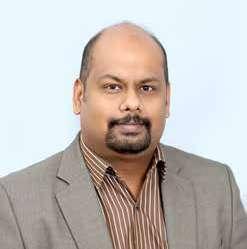

ILA initiatives support COVID affected expats
Indian Ladies Association donates over 900 face masks to ICRF launched an initiative
Indian Ladies Association (ILA) has had owned reusable a busy summer. The members raised laptops in good working condition to the funds which were donated the Migrant children from low-income families. Workers Protection Society’s (MWPS) “With the academic sessions beginning in COVID-19 relief fund. These funds are the month of September, providing laptops being used to distribute dry rations to the to meet the current online requirements could delivery on purchase of sims. ease the burden on less privileged families who are already reeling under salary cuts and job losses. The e-waste lying around our home or office can be put to good use after backing up the data, formatting the disk and uploading required software” said the Hon. Vice President Sarada Ajith. (If you would like to know more about this initiative or wish to donate please contact Hon. Vice President Sarada Ajith on 38872702 or Hon. General Secretary Trupti Sudeep on 36885440.)

